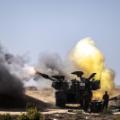Our live coverage of Israel's war against Hamas in Gaza has moved here.
February 11, 2024 Israel-Hamas war
By Heather Chen, Andrew Raine and Antoinette Radford, CNN
More than 60 people killed in Israeli strikes on Rafah, Palestinian Red Crescent Society says
From CNN staff
More than 60 people have been killed in Israeli airstrikes on the southern Gazan city of Rafah, the Palestine Red Crescent Society said early Monday.
CNN cannot independently verify the numbers.
The city, where more than half of Gaza’s population is seeking refuge, experienced "intense targeting" by warplanes and airstrikes, the PRCS said.
Helicopters also fired machine guns along its border regions, according to the PRCS. Rafah lies near Gaza's border with Egypt.
The Israel Defense Forces confirmed Monday that they conducted "a series of strikes" on targets in the area of Shaboura, a district of Rafah, saying in a statement that "the strikes have concluded."
A mosque in Shaboura was among the targets of the Israeli strikes, according to the Rafah municipality.
Hamas-run television channel Al-Aqsa reported two mosques were targeted as well as 14 homes in various areas of Rafah on Monday.
The director of Abu Yousef Al-Najjar Hospital said medical facilities in Rafah "cannot handle the large number of injuries due to the Israeli occupation's bombardment."
According to the PRCS, people are trapped under the rubble and there is still a heavy presence of warplanes in the skies over Rafah.
Some context: Israeli Prime Minister Benjamin Netanyahu brushed off mounting criticisms over plans for a ground offensive in Rafah, where more than 1.3 million people have taken refuge, many of whom were already displaced from other parts of the enclave and say they have nowhere to go.
This post has been updated with the IDF's confirmation of strikes on Rafah.
Two male Israeli hostages rescued in special operation in Rafah, IDF says
From CNN staff
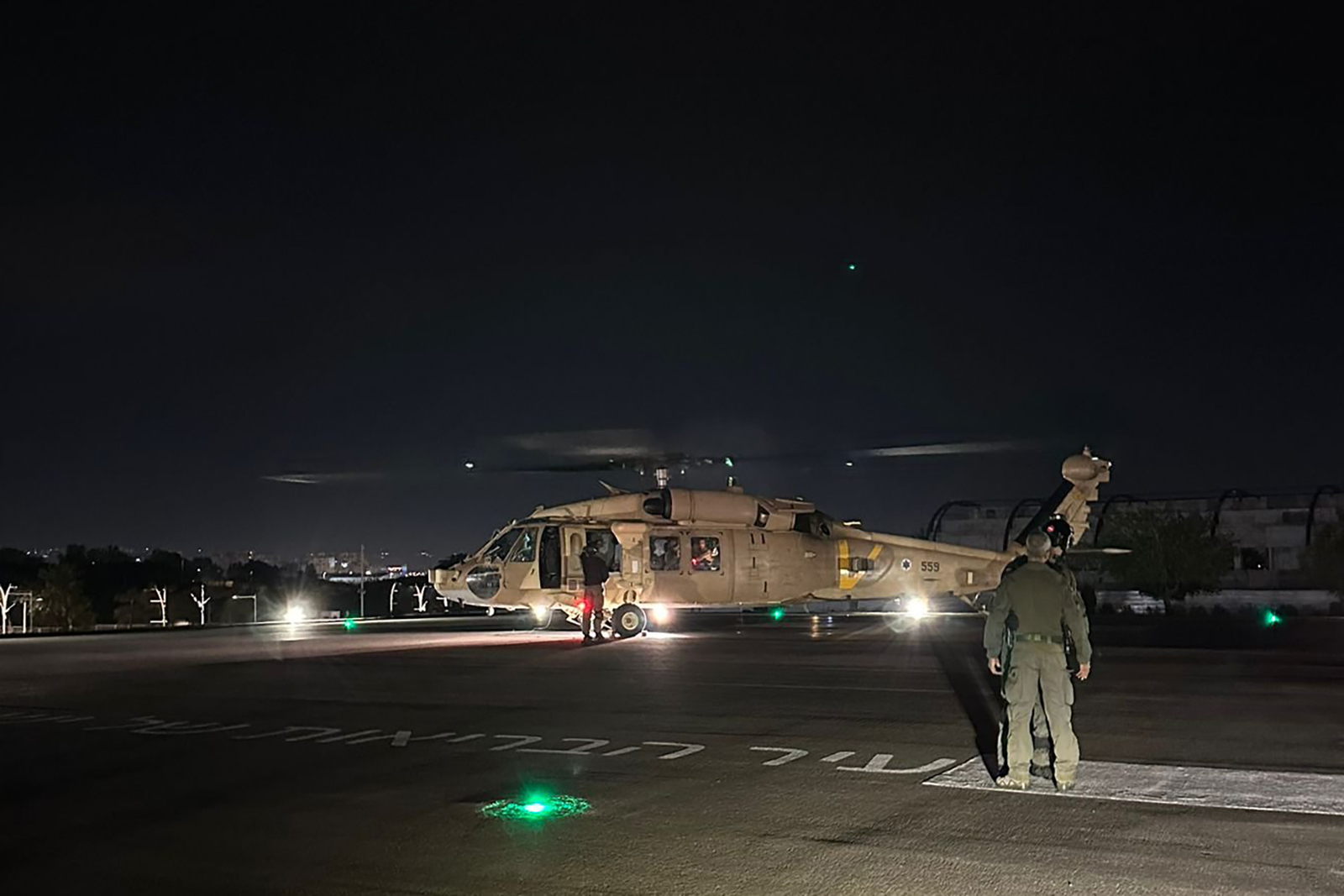
Two Israeli hostages were rescued overnight from the southern Gaza city of Rafah in a special operation between the Israel Defense Forces, Israel Security Agency Shin Bet, and the Israeli police.
The two hostages have been identified as Fernando Simon Marman, 60, and Louis Har, 70, who were taken by Hamas during the militant group's October 7 attack on Israel, according to the joint statement on Monday.
Their rescue comes 128 days after they were taken captive.
The two men are in good medical condition and have been transferred to Sheba Medical Center in Israel, the IDF said.
Israeli Defense Minister Yoav Gallant hailed it as an "impressive release operation" by the IDF.
"All appreciation to IDF forces, security forces and special police forces for the important operation and quality performance. We will keep our commitment to return the hostages in any way," he wrote on X.
This post has been updated with the defense minister's comments.
Biden and Netanyahu discuss hostage release at length, but gaps remain
From CNN’s Priscilla Alvarez, MJ Lee and Aileen Graeft
President Joe Biden and Israeli Prime Minister Benjamin Netanyahu discussed a deal to secure the release of hostages in Gaza at length on Sunday, according to a senior administration official, who cautioned that while a framework is in place, gaps remain.
The call between Biden and Netanyahu lasted about 45 minutes and two thirds of the conversation was focused on the release of hostages, according to the senior administration official. US officials have been working on hammering out a framework that includes the release of hostages as well as a humanitarian pause.
“There are certainly gaps that need to be closed. Some of them are significant, but there has been real progress over the last few weeks, and we are now seeking to do all we possibly can to capitalize on it,” the senior administration official said.
During the call, Biden also expressed concerns about a ground offensive in Rafah, in southern Gaza, where more than 1.3 million people are believed to be living. The majority have been displaced from other parts of Gaza and say they have nowhere to go.
According to a White House readout, Biden "reaffirmed” his stance to Netanyahu that the Israeli military should not proceed with the military operation in the city “without a credible and executable plan” to ensure the safety of civilians.
“We have made very clear that an operation under current conditions is not something that we could envision,” the senior administration official said about the call between the two leaders.
UN Special Rapporteur says October 7 attacks were "in response to Israel's oppression"
From CNN’s Mitchell McCluskey
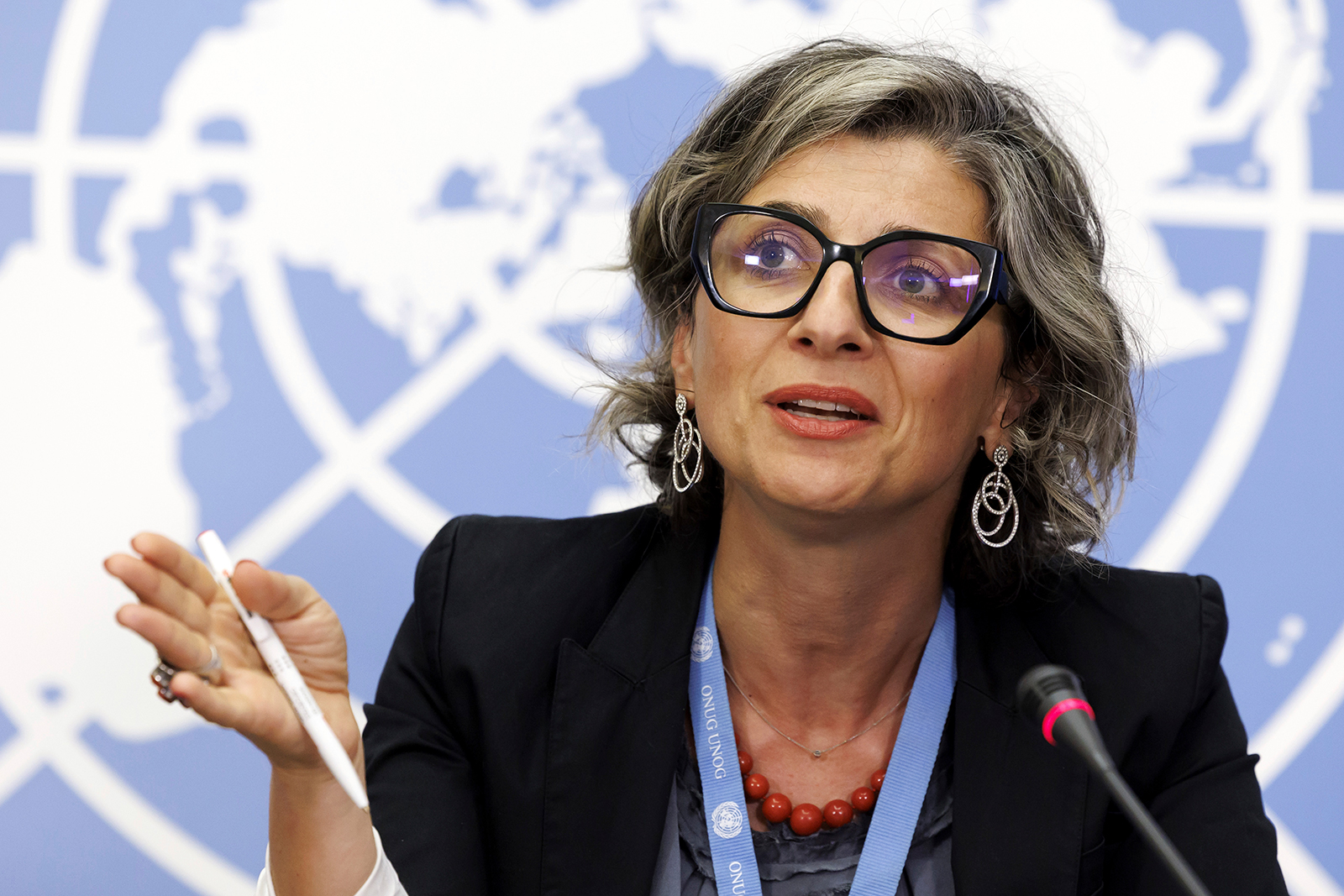
Francesca Albanese, the UN Special Rapporteur on the Occupied Palestinian Territories, rejected French President Emmanuel Macron’s remarks that the October 7 Hamas attack was the “largest anti-Semitic massacre of the 21st century.”
“The ‘largest anti-Semitic massacre of our century'? No, Mr. Macron. The victims of October 7 were not killed because of their Judaism, but in response to Israel's oppression. France and the international community did nothing to prevent it. My respects to the victims,” Albanese said in a social media post.
Albanese was responding to comments made by Macron as he paid tribute to the October 7 victims at a ceremony in Paris on February 7. During the ceremony, Macron said “the unspeakable resurfaced from the depths of history” that day.
Albanese said she condemned the attack and was “disappointed” that some had interpreted her comments as justifying Hamas’ actions.
“Disappointed that some read my tweet as ‘justifying’ the Hamas crimes of October 7, which I have strongly condemned several times. I reject all racism, including anti-Semitism, a global threat. But explaining these crimes as anti-Semitism obscures their true cause,” she said.
In response to Albanese, the French Foreign Ministry reiterated Macron’s comments that the October 7 massacre was the "largest anti-Semitic massacre of the 21st century."
Netanyahu says he thinks enough hostages are alive to "warrant the kind of efforts" Israel is making
From CNN's Abel Alvarado
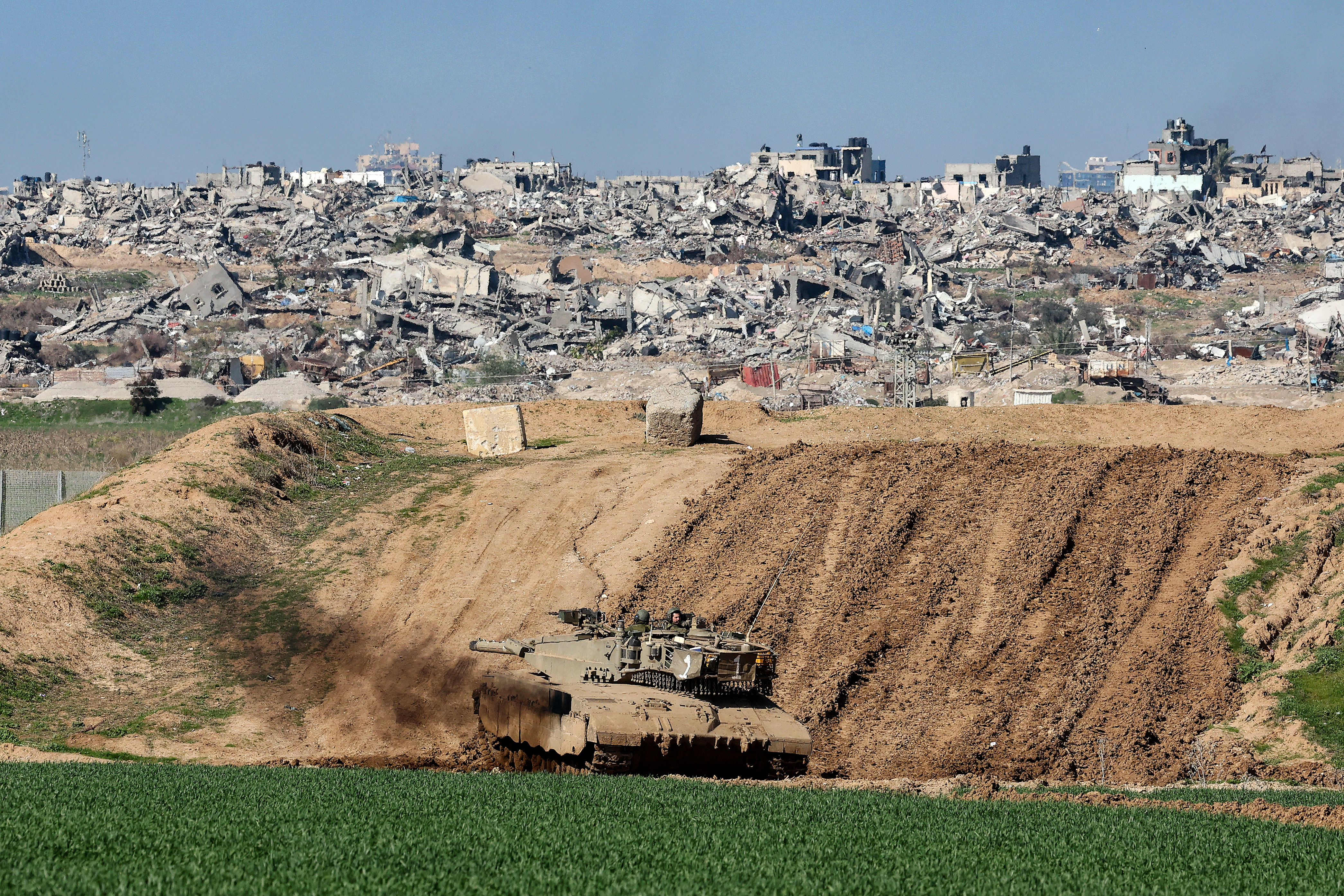
Israeli Prime Minister Benjamin Netanyahu said he thinks enough hostages are alive in Gaza to “warrant the kind of efforts” Israel is making to secure their release.
“I’m committed to getting them out, make every effort. And it requires pressure, pressure has worked, and pressure will work again,” Netanyahu told ABC News in an interview aired Sunday.
Netanyahu was asked about the Hostage and Missing Families Forum’s open letter that questioned Israel’s approach to ongoing negotiations with Hamas, and its commitment to securing the release of hostages.
“I’m not sure anybody can put themselves in the position of the families, but neither can the families put themselves of the decisions makers,” Netanyahu said. “These are two separate things. They reach our heart, they reach my heart, but I’m also responsible for the safety and the security of the people of Israel,” he added.
What we know about the hostages: There are currently 136 hostages held in Gaza, according to the Israeli prime minister’s office. Of those, 132 are from the October 7 attack. It is believed 103 of those hostages are alive, with 29 reported dead.
Hamas holds a majority of the hostages, but some are believed to be held by the Palestinian Islamic Jihad and possibly smaller groups or individuals in Gaza.
Call with Biden: During a call with US President Joe Biden on Sunday, Netanyahu discussed hostage negotiations at length, according to a senior US administration official. The official cautioned that, while a framework for a deal is in place, gaps remain.
CNN's Priscilla Alvarez and MJ Lee contributed reporting to this post.
Biden stresses to Netanyahu the need for "credible" plan to ensure safety of Rafah civilians
From CNN’s Aileen Graef
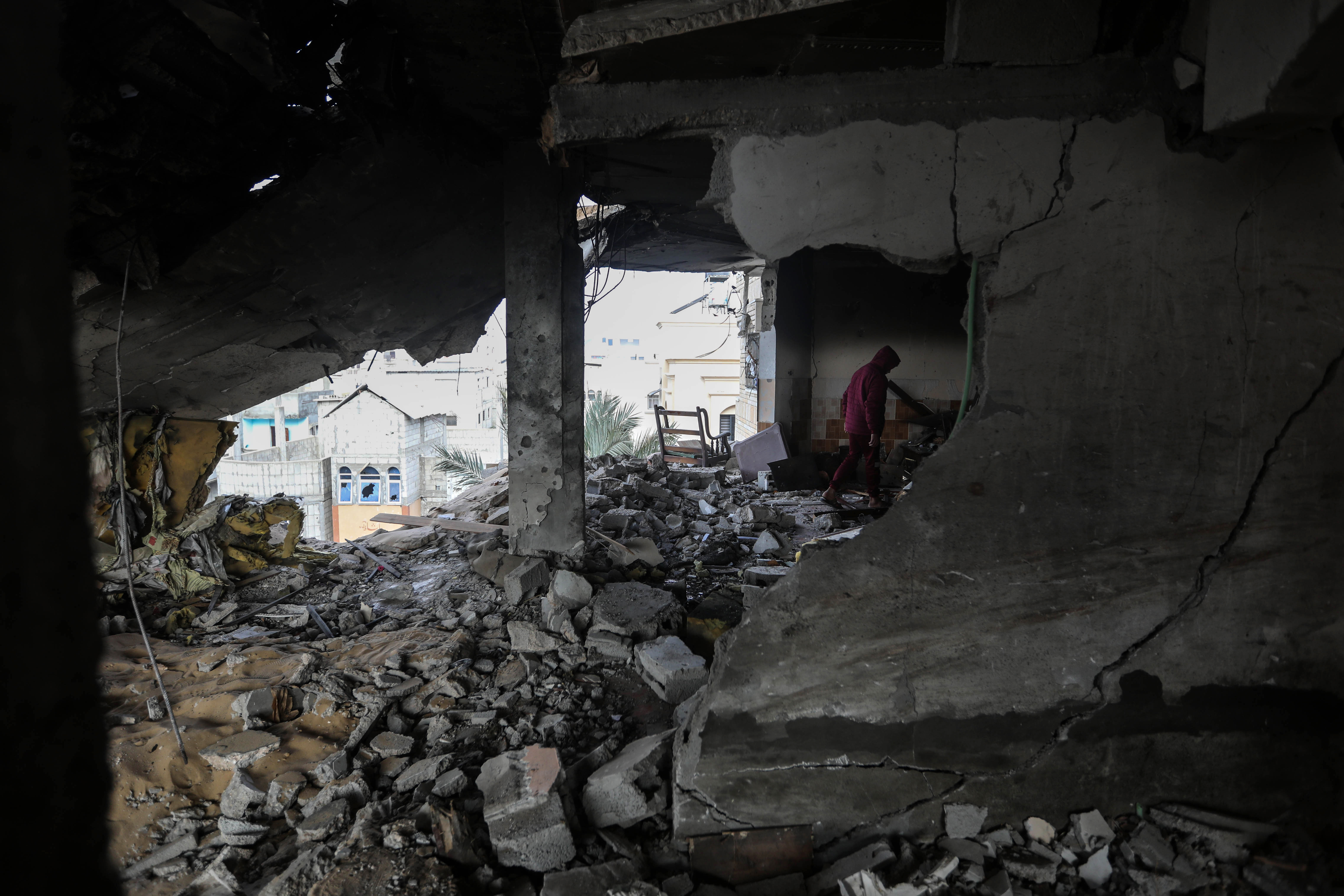
US President Joe Biden spoke with Israeli Prime Minister Benjamin Netanyahu Sunday morning and “reaffirmed” his stance the Israel Defense Forces should not proceed with the military operation in the southern Gaza city of Rafah “without a credible and executable plan” to ensure the safety of civilians.
Biden also stressed the need capitalize on the progress in the negotiations to secure the release of the remaining hostages.
Some context: Netanyahu has directed the country’s military to plan for the “evacuation of the population” from Rafah, his office said in a statement on Friday, ahead of an anticipated ground assault on the southern Gaza city.
Many of the hundreds of thousands of Palestinians living in tent camps in Rafah have already been displaced from elsewhere in the enclave and say they have nowhere to go.
The plan has sparked concern from many countries, including Saudi Arabia and the United Kingdom. Saudi Arabia's foreign ministry warned of "very serious repercussions of storming and targeting" the city while the United Arab Emirates warned Israel's plan “threatens to cause the loss of more innocent life and exacerbate the humanitarian catastrophe in the Gaza Strip.”
The key facilitator of negotiations between Israel and Hamas, Qatar has also condemned the plans, and the Egyptian foreign ministry said Sunday that it strongly rejects Israel's plan, warning of "dire consequences."
Hamas has warned that if the offensive into Rafah takes place, it would spell the end of hostage negotiations.
Israel's military says it will never "deliberately target journalists" following death of Palestine TV journalist
From CNN’s Celine Alkhaldi
Responding to an inquiry from CNN on the killing of Palestine TV journalist Nafez Abdul Jawad, the Israel Defense Forces (IDF) said it “takes all operationally feasible measures to mitigate harm civilians including journalists. The IDF has never, and will never, deliberately target journalists.”
Eyewitness and journalist Mohammad Al-Sawalhi told CNN on Thursday that Abdul Jawad was killed after an Israeli missile struck the Deir El-Balah house he was staying in. At least 14 people were killed, including 5 children, when the residential buildings were targeted, eyewitness, and journalist Tareq Al Hilou, who received information from health officials in Rafah, told CNN.
The IDF said it is not aware of any strikes at these coordinates.
It said it will continue to counter threats and “remaining in an active combat zone has inherent risks”, given the ongoing exchanges of fire.
Some context: As of January 8, at least 79 journalists have been killed in Gaza, Israel, and Lebanon, the Committee to Protect Journalists (CPJ) said on Monday. The deaths include 72 Palestinians, four Israelis, and three Lebanese, according to CPJ's data.
Netanyahu doesn’t “know exactly” what Biden’s over the top comment meant, he says
From CNN's Abel Alvarado in Atlanta
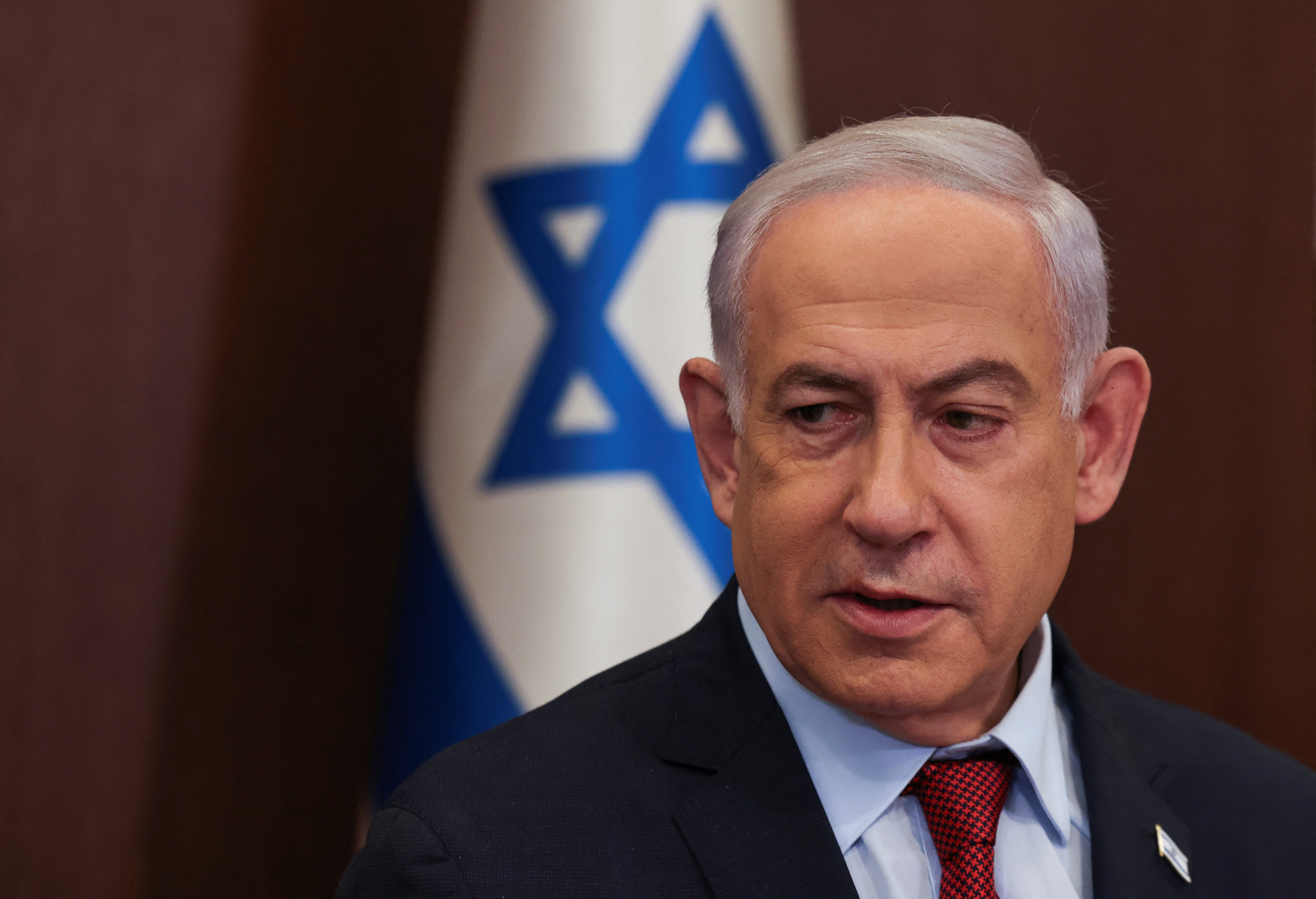
Israeli Prime Minister Benjamin Netanyahu has addressed President Joe Biden’s comments on Israel’s response in Gaza as being “over the top."
“I appreciate Biden’s support for Israel since the beginning of the war, I don’t know exactly what he meant by that,” Netanyahu said in an interview with ABC News aired Sunday.
Netanyahu went on to say Israel has “responded in a way that goes after the terrorist and tries to minimize the civilian population.”
ABC's Jonathan Karl then reminded Netanyahu of the death toll reported by the Hamas-controlled Ministry of Health in Gaza that now tops 28,000.
“I’d be cautious with the Hamas statistics, and I can tell you that according to warfare experts (…) we brought down the civilian to terrorist casualty ratio down below 1 to 1 which is considerably less than in any other theatre of similar warfare," Netanyahu said.
On Thursday, President Biden offered one of his sharpest rebukes to date on Israel’s military conduct in Gaza, saying the operation to go after Hamas had been “over the top.”
Echoing some of his other comments to ABC, in a separate interview with Fox News on Sunday, Netanyahu said those who say the military can’t go into the southern Gaza city of Rafah essentially want Israel to lose. The Israeli prime minister claimed there is “plenty of room” for Gaza’s civilians to evacuate to ahead of a ground assault on Rafah.
CNN's Lauren Izso contributed to this report.


